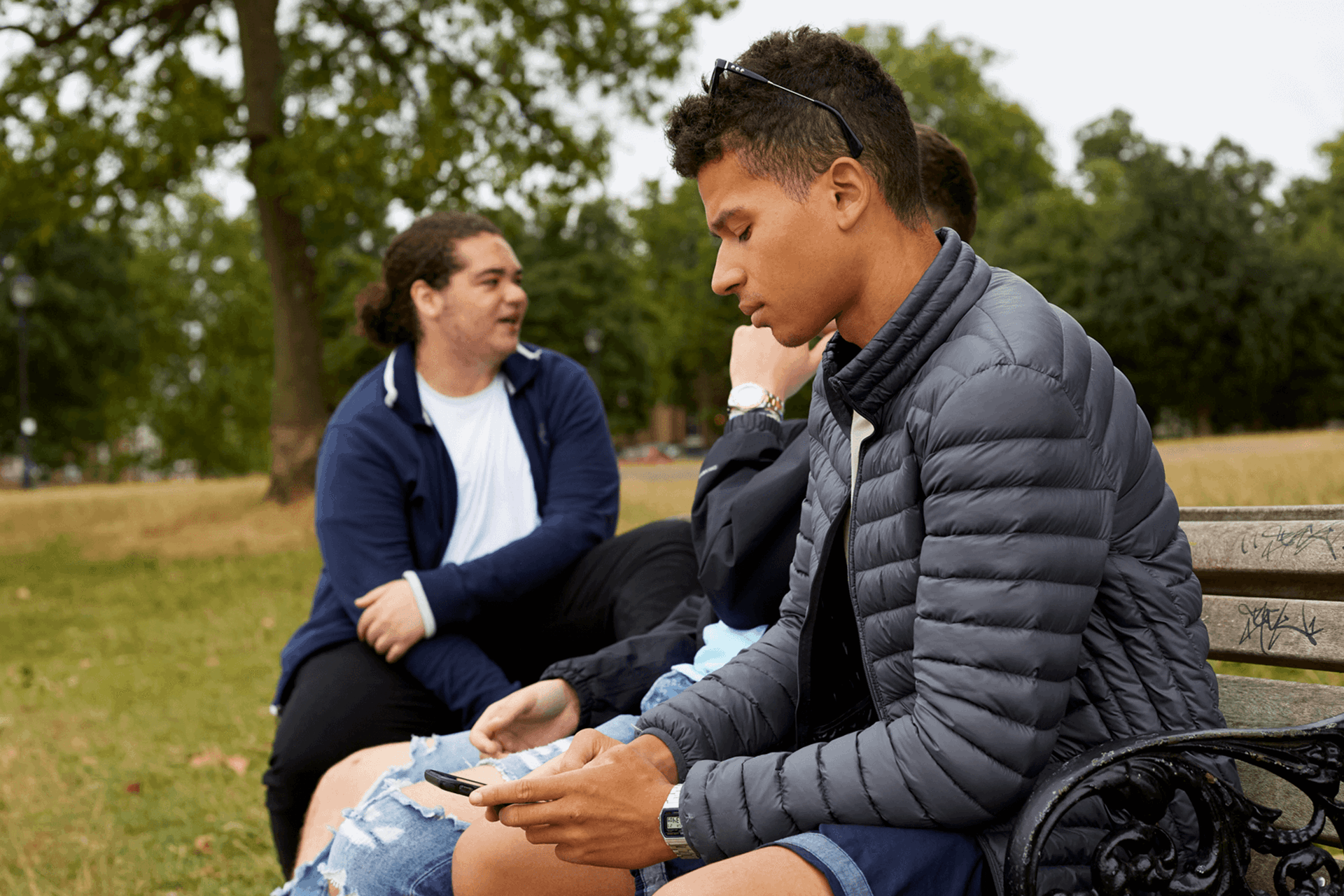
Sleep and mental health are closely linked. If you’re struggling to sleep, daily life can feel tough. And if you’re feeling down, you might not be able to sleep.
Lots of people struggle with their sleep but there are things you can try out that might help.
Everyone needs a different amount of sleep, but the NHS recommends:
- seven to nine hours for adults (over 18)
- nine to thirteen hours for children (under 18)
If you usually feel tired during the day, you might not be getting enough sleep. It’s a good idea to take a look at your sleeping habits and find ways to improve your nights.
Advice for common sleep problems
There are loads of reasons why you might find sleeping tough. Most people struggle with their sleep now and then. Here are some common reasons we’ve heard from young people and things you can try to help.
Your wellbeing and mental health can really affect your sleep. For example:
- anxiety can leave you feeling on edge or even cause panic attacks at night
- depression can disrupt your sleep, making you sleep either too much or too little
- trauma or PTSD might lead to nightmares or night terrors, making you feel unsafe in the dark
- psychosis can make falling asleep difficult if you have frightening hallucinations
- mania and hypomania might leave you feeling overly energetic and awake
- ADHD can mean you have racing thoughts that keep you awake
There are lots of feelings and conditions that might impact your sleep, and not getting enough sleep can also make it harder to manage your mental health. When you’re tired, it can be hard to maintain your routine or cope with difficult emotions. We have lots of advice on mental health conditions and feelings that can support you.
Not having a good sleep routine can make you feel tired and make it hard to wake up when you need to. And getting into a good routine can be really tough, especially if you work at night or care for a family member.
If you can, try going to sleep and waking up at the same time each day or only going to bed when you’re feeling tired. Try it out for a few days and see if you notice any changes.
Where you sleep can have a huge impact. Sleeping somewhere noisy or uncomfortable could keep you awake or mean you can’t stay asleep. You might not be able to change where you sleep, but doing a few small things can help you rest.
If you have one, putting a blanket on top of your mattress can make your bed more comfortable. Wrapping yourself in a duvet can be soothing and help you to relax. You could also wear earplugs and an eye mask to keep out the noise and light.
Staying up late gaming, scrolling on your phone or streaming your favourite show can throw off your routine. The light from screens can make it hard to relax. Using ‘night mode’ or changing the brightness can help with this a bit. You could also try downloading a blue light filter or use blue light glasses.
Doing something calming and relaxing before bed that doesn’t use your phone can help. You could try some breathing exercises, grounding techniques, journaling or listening to something soothing. Try and do these things without using your phone.
Sleep disorders and treatments
If you’ve been struggling with your sleep for a long time, and you’ve tried different things to help, speak to your GP. You might have something called a sleep disorder which your doctor can help with.
It might also be linked to a mental health condition, like depression or attention deficit hyperactivity disorder (ADHD).
Here are some examples of sleep disorders.
Get help now
If something is keeping you up at night, even if you're not sure what it is, here are some services that can support you.
-
Childline
If you’re under 19 you can confidentially call, chat online or email about any problem big or small.
Sign up for a free Childline locker (real name or email address not needed) to use their free 1-2-1 counsellor chat and email support service.
Can provide a BSL interpreter if you are deaf or hearing-impaired.
Hosts online message boards where you can share your experiences, have fun and get support from other young people in similar situations.
- Opening times:
- 24/7
-
Samaritans
Whatever you're going through, you can contact the Samaritans for support. N.B. This is a listening service and does not offer advice or intervention.
- Opening times:
- 24/7
-
Youth Access
Provides information about local counselling and advice services for young people aged 11-25.
Put in your location and what you need help with into their 'Find help' search, and see what services are available in your area.
More information and advice
Whether you love the page or think something is missing, we appreciate your feedback. It all helps us to support more young people with their mental health.
Please be aware that this form isn’t a mental health support service. If you are in crisis right now and want to talk to someone urgently, find out who to contact on our urgent help page.
At YoungMinds we take your privacy seriously. If you’d like to read more about how we keep the information we collect safe, take a look at our privacy policy.










